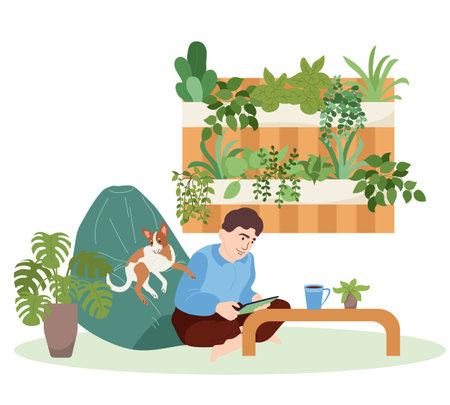Sowing the Seed: Getting Started with Your UK Allotment
Every blooming story on an organic allotment begins with a single, hopeful step onto a patch of British soil. Across the UK, new plot holders often discover their green-fingered journey by word of mouth, local noticeboards, or a curious stroll past thriving community gardens. The process of securing an allotment can feel a bit like joining a secret club—there are waiting lists to navigate, council forms to fill in, and sometimes months (or even years!) of eager anticipation. But patience is part of the adventure; as many successful growers share, the reward is well worth the wait. Alongside learning about compost bins and crop rotation, newcomers quickly find themselves woven into a friendly network of fellow gardeners. From swapping seeds over a cuppa to sharing advice about slug deterrents, these early days are full of connection and support. Each small victory—whether it’s your first spadeful of earth or a neighbourly chat about runner beans—lays the groundwork for seasons of growth ahead.
2. Digging Deep: Embracing Traditional British Methods and Modern Organic Practices
The heart of every successful UK allotment beats with a blend of cherished tradition and modern organic wisdom. Across the country, seasoned growers share stories of hands in the soil, drawing on time-honoured methods like double digging, crop rotation, and companion planting. These classic British techniques are not just nostalgic—they lay the groundwork for bountiful harvests while nurturing healthy soil.
Classic Meets Contemporary
Many plot holders recall their first seasons learning from neighbouring gardeners, watching as spades turned over rich earth in neat rows—a ritual passed down through generations. Yet, today’s thriving allotments also showcase ingenious organic adaptations. For instance, Alice from Kent combines her grandfather’s advice on trench composting with mulching and green manure cover crops. The result? Peas as sweet as childhood memories and a soil teeming with life.
Blending Techniques for Success
| Traditional Method | Modern Organic Practice | Benefits Shared by Growers |
|---|---|---|
| Double Digging | No-dig layering to preserve soil structure | Lighter, healthier soil with fewer weeds |
| Companion Planting (e.g. marigolds with carrots) | Pollinator-friendly wildflower strips | Pest control and vibrant biodiversity |
| Crop Rotation | Bio-diverse polyculture beds | Nutrient-rich crops year after year |
Personal Experiences from Allotmenteers
John from Yorkshire tells how he swapped chemical sprays for interplanting onions with carrots, reducing carrot fly infestations while attracting ladybirds. Meanwhile, Priya in Bristol documents her journey on social media, inspiring others by showing that you can combine the old “dig for victory” spirit with peat-free compost and rainwater harvesting for truly sustainable abundance.
This harmonious merging of old and new is what makes UK allotments so special—a living classroom where each season brings fresh lessons and delights for families to discover together.

3. Cultivating Community: Sharing, Swapping, and Seasonal Celebrations
If you stroll through any organic allotment site across the UK, you’ll quickly notice that it’s much more than just a patch of earth – it’s a thriving hub of camaraderie. Successful organic growers often say that the real harvest isn’t just in the veg you pull from the ground, but in the friendships and shared experiences that grow alongside your runner beans. Allotment life naturally encourages neighbourliness, with plot holders swapping surplus seedlings or rare heritage seeds over the fence, along with a friendly bit of advice about how best to keep slugs at bay or get the juiciest tomatoes. These exchanges are part of an age-old British tradition, where sharing and helping each other out is woven into the very fabric of community gardening.
On many sites, these connections are cemented by regular events. A simple cup of tea in a battered old flask becomes a moment for swapping stories and laughter after a morning’s digging. Some allotment groups organise annual harvest festivals or summer fêtes, where everyone brings something from their plot – whether it’s an impressive marrow, homemade jam, or a basket of apples – and celebrates together under bunting strung between sheds. There might even be friendly competitions for ‘Best Carrot’ or ‘Most Unusual Vegetable’, all in good fun and with plenty of gentle ribbing.
For children growing up around the plots, these celebrations create treasured memories and lasting connections to both people and nature. It’s not uncommon to see little ones helping to pick sweet peas or proudly showing off muddy wellies after a day spent outdoors. Through these shared moments, allotment members young and old feel a true sense of belonging – one rooted as deeply as any ancient oak in British soil.
4. Overcoming Adversity: Weather Woes, Pests, and Learning from Setbacks
Every British allotment holder has a tale or two about the unpredictable weather and the persistent pests that call the UK home. From torrential summer downpours to slugs that seem to appear out of thin air, successful organic gardeners have learned to dance with adversity—often with a smile and a cup of tea in hand.
First-Hand Accounts from Across the UK
Jane from Yorkshire remembers her first allotment season as “more mud than vegetables.” After weeks of rain, her raised beds threatened to float away. Instead of giving up, Jane worked alongside her children to build simple drainage channels using old pots and broken roof tiles they found around the plot. “We splashed around in our wellies and made it fun—a family memory we still laugh about,” she says.
Classic UK Challenges and Creative Solutions
| Challenge | Solution | Lesson Learned |
|---|---|---|
| Slugs & Snails | Copper tape, beer traps, and evening patrols with torches | Patience—and sometimes sharing a lettuce or two! |
| Rainy Summers | Raised beds, mulching with straw, and water collection barrels | You can’t control the weather, but you can adapt to it |
| Mischievous Foxes | Secure fencing and natural deterrents like garlic spray | Respect for local wildlife—and double-checking fences! |
Resilience and Humour: The Heart of Every Plot Holder’s Journey
Tom from Kent shares how he lost his entire crop of carrots one year to root fly. “I was gutted at first,” he admits, “but my neighbour lent me some enviromesh for the next season. We ended up swapping more than just gardening tips—now our families celebrate harvest together each autumn.” It’s these moments of community support and light-hearted perspective that make setbacks surprisingly valuable. Like wise old oak trees standing strong through every storm, successful organic allotment holders across the UK discover that growth—both in the soil and within themselves—often springs from overcoming life’s little adversities.
5. Harvesting Happiness: Family Involvement and Intergenerational Wisdom
Across the UK, organic allotments have blossomed into vibrant hubs for family connection and learning, where muddy boots and laughter are as much a part of the landscape as runner beans and rhubarb. Many successful allotment holders recall their earliest memories of digging alongside parents or grandparents—learning not only how to sow seeds, but also how patience and care yield the sweetest harvests. The allotment becomes a living classroom, where children’s curiosity is ignited by the thrill of unearthing potatoes or chasing butterflies between rows of marigolds.
For families in places like Kent, Yorkshire, and Bristol, these green plots offer more than just fresh veg; they nurture bonds that last a lifetime. It’s not uncommon to see three generations working together—grandparents passing down tips on crop rotation or composting while little ones discover the magic of earthworms and ladybirds. These shared moments in nature foster a sense of stewardship and pride that extends beyond the garden gates.
Many experienced growers speak fondly of annual traditions, such as communal harvest feasts or friendly competitions for the largest pumpkin at the village show. These events are woven into the fabric of local communities, helping children feel connected to both place and people. It’s through these joyful rituals that stories—and valuable gardening wisdom—are handed down, ensuring each generation can build upon the successes (and learn from the failures) of those before them.
The tales from successful organic allotment holders highlight not just bumper crops but also lessons in resilience, teamwork, and gratitude. Parents often reflect on how tending an allotment with their children teaches them about patience, responsibility, and respect for nature. As one London grower put it: “Watching my son pull his first carrot from the ground was pure magic—it’s something you simply can’t buy from a supermarket.”
These heartfelt experiences reveal why so many families across Britain cherish their allotments as sanctuaries for growth—in every sense of the word. Whether it’s sharing a flask of tea after a hard day’s weeding or celebrating a young gardener’s first sunflower, it’s clear that happiness is harvested alongside the crops, season after season.
6. Beyond the Plot: The Ripple Effect of Organic Allotment Success
It’s easy to imagine that the magic of an organic allotment is contained within its neat, green borders. However, stories from across the UK show that the influence of these thriving plots reaches far beyond their fences. Successful organic growers have become local champions for greener living, inspiring a new generation and helping shape community life in remarkable ways.
Bringing Nature into the Classroom
In towns from Cornwall to Cumbria, passionate allotment holders have partnered with local schools, welcoming children to discover the wonder of sowing seeds and harvesting veg. These visits go beyond simple gardening lessons – they spark curiosity about where food comes from and encourage healthy eating habits. Some schools have even set up their own mini-allotments, inspired by the success and support of nearby plot holders who act as guides and mentors for eager young gardeners.
Cultivating Community Spirit
The ripple effect doesn’t stop at the school gates. Many neighbourhoods have found a renewed sense of community through shared allotment spaces. Annual open days, seed swaps, and communal harvest feasts—often led by seasoned organic growers—bring people together regardless of age or background. In places like Sheffield and Bristol, once-neglected plots have blossomed into vibrant community hubs thanks to collaborative efforts sparked by one or two determined organic enthusiasts.
Shaping Greener Policies
The stories don’t end with vegetables and friendships. Across the UK, successful organic allotmenteers have been influential voices in local councils’ decisions about public green space management. Their experiences have shown policymakers that sustainable growing isn’t just possible—it’s practical and beneficial for whole communities. This has led to more support for organic methods in council-run spaces, increased funding for new allotment sites, and even initiatives encouraging pollinator-friendly planting throughout towns and cities.
The journey of a carrot from plot to plate is just one part of a much bigger story. Thanks to the dedication of Britain’s organic allotment holders, children are learning outdoors, neighbours are working together, and public spaces are being shaped for a greener future. Like ripples spreading out on a pond, the impact of every lovingly tended plot goes further than you might ever imagine.


